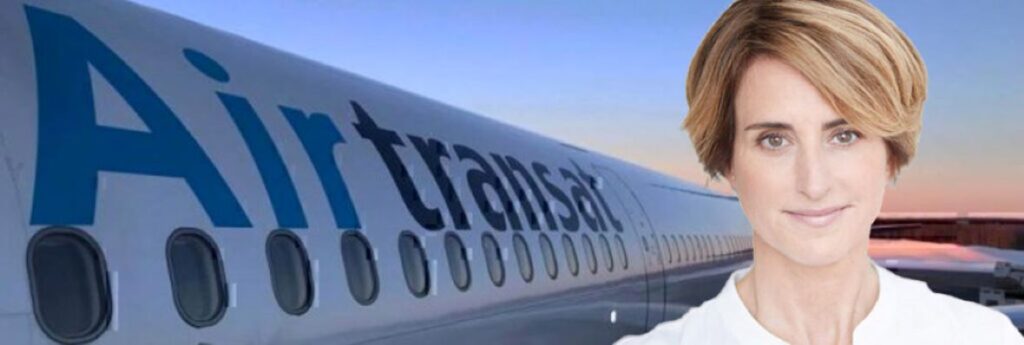Transat AT Inc. saw revenues double – and losses shrink by more than two-thirds – in its latest quarter amid a major sales boost propelled by solid leisure travel demand on top of higher prices.
The year-over-year figures saw the travel company report a second-quarter loss of $29.2 million compared with a loss of $98.3 million a year ago – which Transat characterized as “a solid performance.”
“People from 55-plus – the baby boomers – have resumed their pre-COVID travel pattern, which was not the case in 2022,” Annick Guerard said Thursday.
“It represents a good proportion of our clientele. And they have significant disposable wealth and the time to travel and spend,” she told analysts on a conference call, noting older Canadians spend 15 to 20% more than the average Transat customer.
“This is really important for us. And they are expected to be much more resilient than younger consumers in the face of higher prices and high inflation, which we know will continue in the upcoming year.”
Despite those economic clouds, Guerard said that “we don’t see signs of a slowdown” in bookings on the horizon – for summer or winter. “Demand is holding despite higher fares and higher inflation.”
The high volume drove up prices by 15% at the outset of the quarter and nearly 24% by the end compared with a year earlier, according to Guerard.
“In addition,” she said, “Transat actively continued its fleet optimization plan, deploying in winter 2023 a capacity comparable to winter 2019 with 20 fewer aircraft in service.”
Transat plans to deploy 89% of its seat capacity this summer relative to 2019 levels, with the vast majority bound for Europe.
Nonetheless, the company is exercising “discipline” on growth, Guerard added, “in case the economic slowdown will affect overall demand – but so far we don’t see that in our indicators.”
A dearth of workers and engine parts mark two challenges for airlines, including Air Transat.
“The labour market is tight, of course, but we have been able to attract and retain all the people we need,” Guerard said. The Montreal-based company is also leasing additional engines, some as backups, to meet supply chain challenges.
Nevertheless, she said, “With more than 60% of our capacity sold, the stage is set for a dynamic summer… with Europe comprising 80% of the activity, leveraging the most profitable routes for Transat.”
Revenue in Q2 totalled $870.1 million, up from $358.2 million in the same quarter last year.
The company also raised its target for adjusted operating income margin to 5.5 to 7% for its 2023 financial year, up from its initial target range of four to six per cent.

